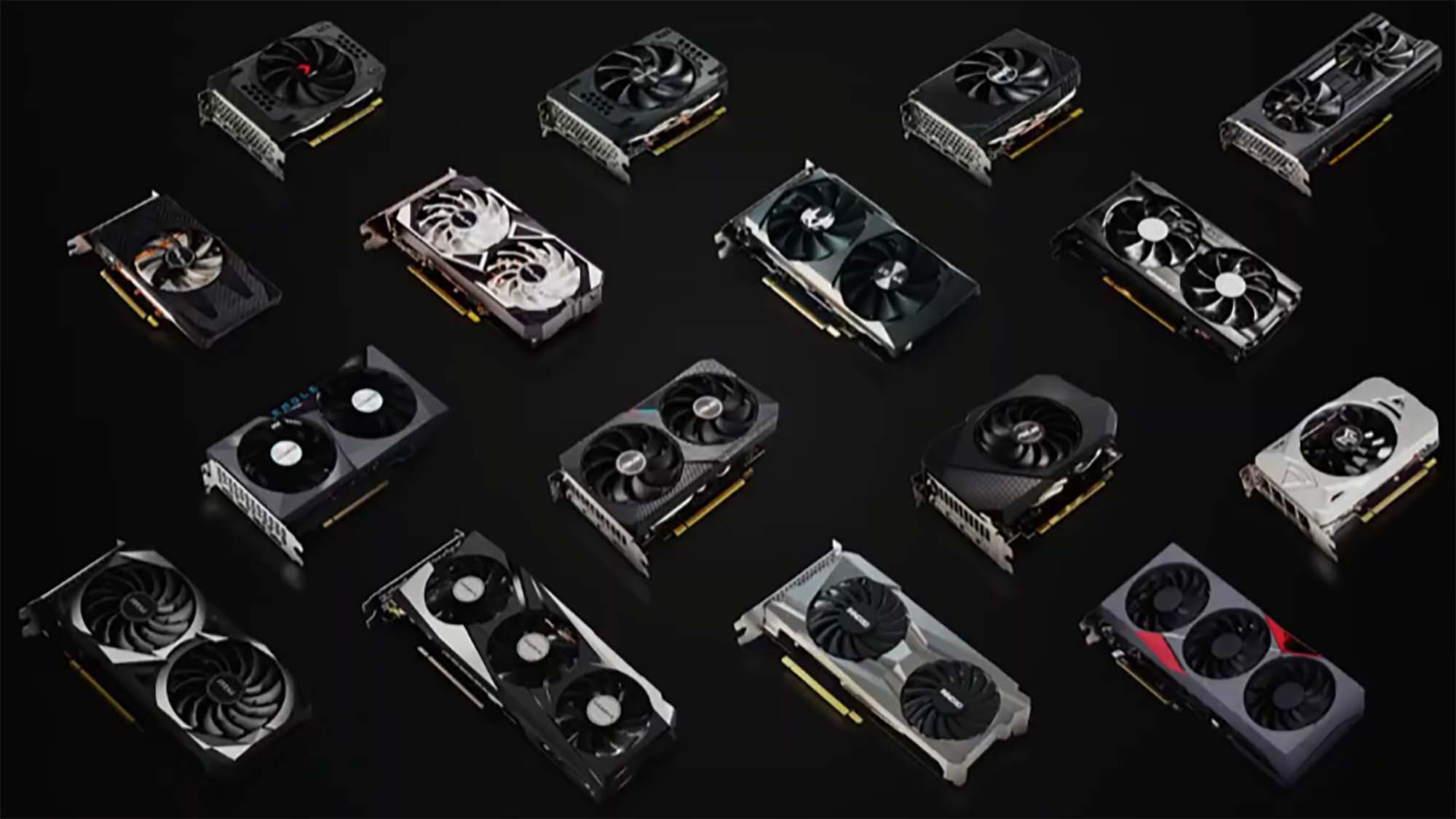Nvidia's RTX 3050 GPU might be easier to buy than the RTX 3060 or RTX 3060 Ti
A budget-friendly GPU that you might actually get your hands on

The Nvidia RTX 3050 desktop graphics card might have a better supply than previous 'budget-friendly' GPU launches, at least according to the Chinese tech website Board Channels.
As reported by Videocardz, this could mean that there's more available stock to go around than there was for other Nvidia Ampere cards like the RTX 3060 and RTX 3060 Ti, with the original post headlined as "it is rumored that NV (Nvidia) has relevantly sufficient supply for the first batch of RTX 3050 series".
The Nvidia GeForce RTX 3050 will go on sale on January 27, 2022, with prices starting at $249 (about £185 / AU$350), but aftermarket cards will likely cost upwards of $300 / £230 / AU$420.
We only got a passing glance at the RTX 3050 from Nvidia's CES 2022 keynote, but we do know that it will come with 8GB GDDR6 memory and can achieve 18 TFLOPS of ray tracing performance, 73 TFLOPS of tensor performance, and 9 TFLOPS of shader performance.
It's hardly going to be one of the best graphics cards on the market, but given this is a GPU targeting folks who want to upgrade from much older hardware on a tight budget or newcomers to PC gaming looking for an affordable way to enjoy the hobby, it does have plenty of market appeal, especially as it supports DLSS and real-time ray tracing, two things that the older GTX series of Nvidia graphics cards can't do.
As with previous launches, we won't really know if this has better availability than previous launches until listings start to go live, but expect much of what we've already seen these past two years - digital queues, websites crashing and lottery systems to try and keep inventory away from bots and scalpers. Let's also hope that Nvidia provides a little more information available before the big day itself.
Analysis: please, don't get your hopes up
The graphics card market has been a bit of a shambles for almost two years now, but it's not going to be an easy fix given the situation isn't caused by one specific issue. Instead, an unfortunate mix of the ongoing chip shortage and a rise in Ethereum crypto mining created the perfect environment for scalpers and opportunists to snap up stock and inflate prices massively over the MSRP.
Sign up for breaking news, reviews, opinion, top tech deals, and more.
The solution could be to flood the market with affordable GPUs to dissuade people from using bots to buy up all the stock, but a lot of big industry names don't see manufacturing constraints born of the chip shortage ending any time soon, with improvements expected around 2023.
If you're currently rocking a rather tired graphics card in your system, specifically around the GTX 1660 Ti mark or lower, then the RTX 3050 is a good option to 'upgrade' to, especially with the boost you'd get from DLSS. That is, of course, if the price remains at MSRP.
We're skeptical and a smidge pessimistic given the past few launches of new graphics cards, so it's likely that some retailers might just bump up the asking price without any interference from scalped product sold on online marketplaces at a huge markup. In short, this all sounds great on paper but we've had rumors of 'plentiful stock' before and been burned by disappointment.
If you've been looking to upgrade from an old GTX card, but have been turned off by the exorbitant costs of Nvidia's recent graphics card releases, the Nvidia RTX 3050 might be your best bet to take advantage of real-time ray tracing, DLSS, and more of what Ampere has to offer. Keep your fingers crossed that you don't have to play a game of 'fastest finger wins' in order to get one added to your basket or camp outside of your local PC hardware store to be first in line.
- AMD vs Nvidia: who makes the best graphics cards?

Jess is a former TechRadar Computing writer, where she covered all aspects of Mac and PC hardware, including PC gaming and peripherals. She has been interviewed as an industry expert for the BBC, and while her educational background was in prosthetics and model-making, her true love is in tech and she has built numerous desktop computers over the last 10 years for gaming and content creation. Jess is now a journalist at The Verge.